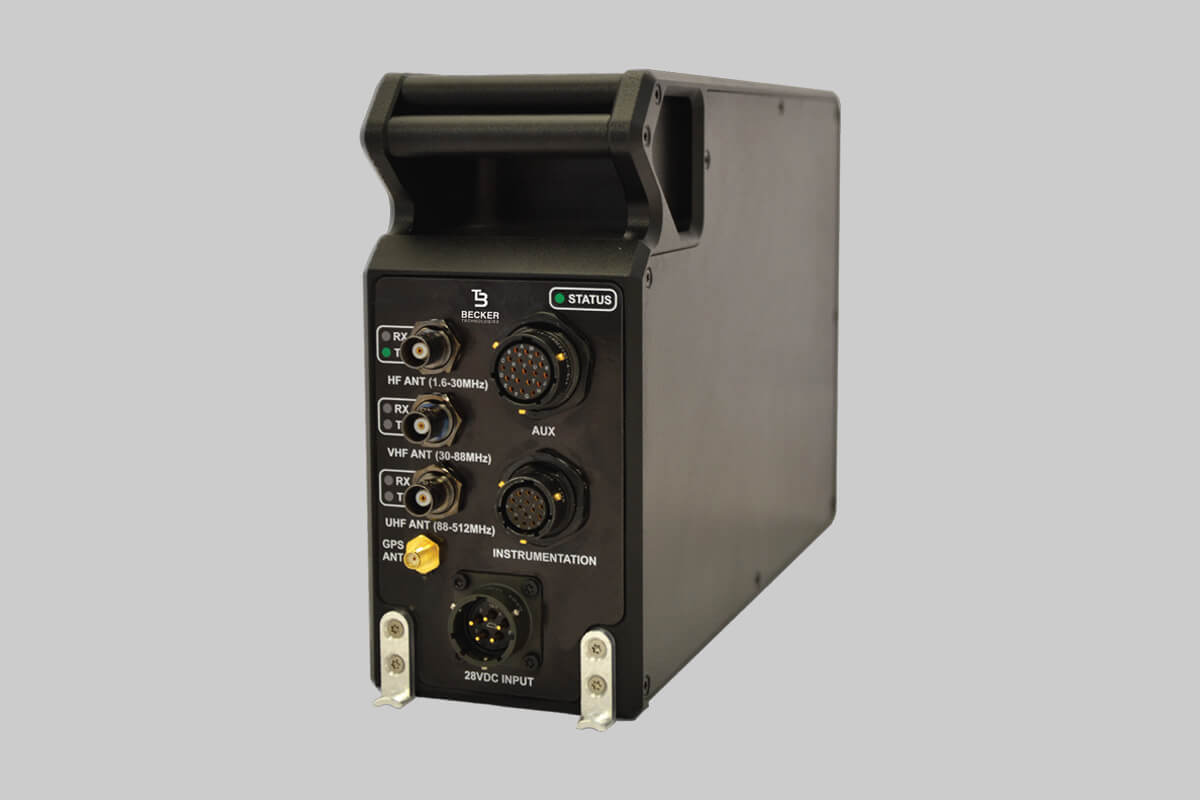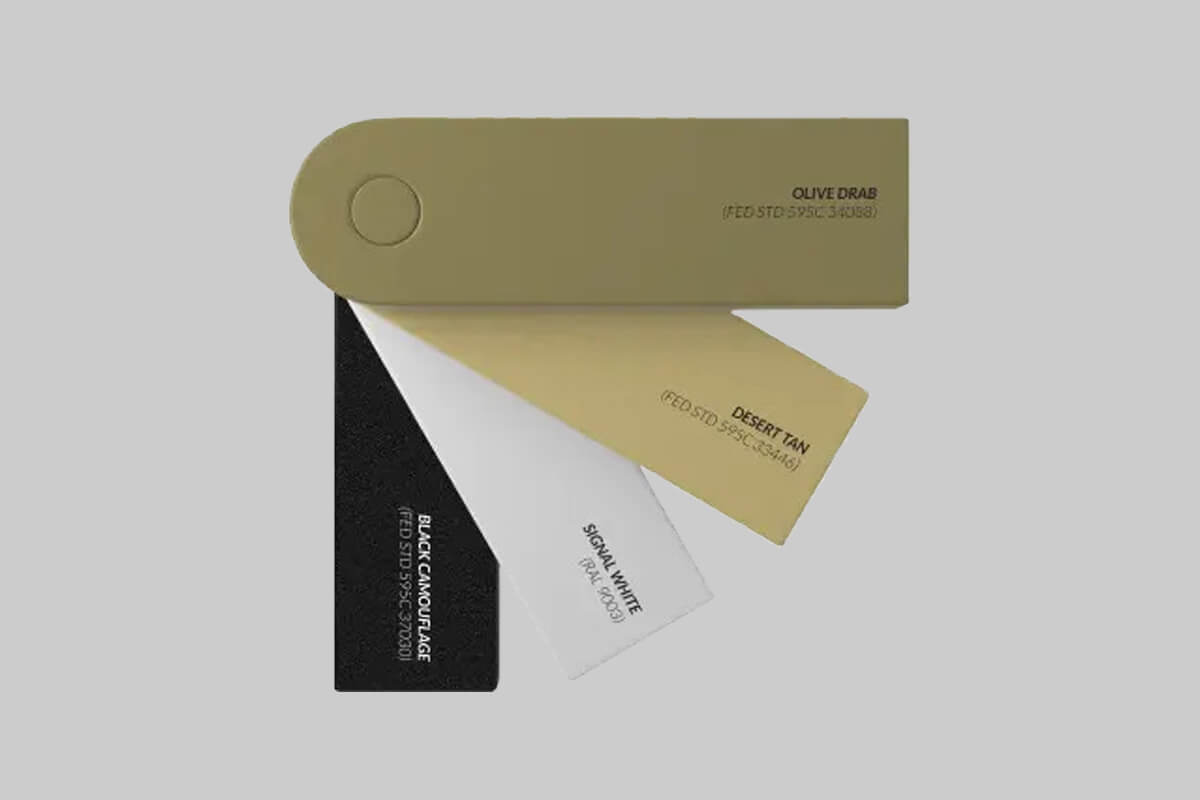Wideband Military SDR Radio Family
H – 1.6Mhz – 512Mhz
HV – 30Mhz – 88Mhz
VU – 30Mhz – 170Mhz
HU – 88Mhz – 170Mhz
GTAV – 112Mhz – 160Mhz
GTAU – 225Mhz – 400Mhz
Basic Description
The AQUILA 1 radio is the lightest and compact SDR Wideband Military Radio in its class, weighing only 3.5kg. The enclosure is milled from T6-Aluminium; surface treated and powder-coated to ensure ingress protection at a depth of 3 meters for a duration exceeding 3 hours.
IMPLEMENTABLE HF FEATURES*
SSB data Up to 9600 bps in 3 kHz
ISB data Up to 19200 bps in 2×3 kHz
Standards and Compliance MIL-STD & STANAG
SOFTWARE OPTIONS
Automatic Link Establishment (ALE)*
Radios operates in full COMSEC (SDV) and TRANSEC (FFH) Modes during ALE operations. Radio can offer either one or both standards of ALE.
TRANSEC*
FFH (Fast Frequency Hopping)
Hop Sequence: OTP (One Time Pad), AES128, User Specific
Hop Rate:1/2/5/10/20/50/100/200/400/600 hops per second
Hop Widths: 100khz, 1,2,5,10,20,40MHz wide/ User defined frequency bands*
-
Hopping Key: 8-digit decimal Key on OTP (One-Time-Pad) or AES128 more than 40,000 nets.
Synchronization: SPHS (Satellite-Pulse-Hopping-Synchronization; GPS / GLONASS)
OTAHS (Over-The-Air-Hopping-Synchronization)*
COMSEC*
SDV* (Secure Digital Voice): AES256 Encryption
STANDARDS
Enviromental: MIL-STD-810 G
EMI / RFI: MIL- STD – 461E
OPERATING TEMPERATURE: -30 to + 65ºC STORAGE TEMPERATURE -40 to +85ºC
RECEIVER
Sensitivity:
- 125 dBm (SSB) 10 dB SINAD TYP.
- 116 dBm (AM) 10 dB SINAD TYP.
- 118 dBm (FM) 12 dB SINAD TYP.
Image Rejection: > 80 dB
IF Rejection: > 80 dB
Blocking: > 90 dB
STANDARD FEATURES
Standard integrated features include Antenna Tuner, Forward and reflective power Indication, SWR and S-Meters, Frequency Jog, Compandor, Noise Reduction, Satellite Position Receiver, Ad-Hoc Channel Scan, SelCall, Text/Data Modem, Voice Scrambler, Interface capabilities allow for all kinds of Headsets, Intercom, ROIP, Cross Patch (Relay / Repeater), RF power Amplifier and External Tuners.
ECCM – UNCOMPROMISED COMMUNICATION
Communication Security includes COMSEC (Secure Digital Voice) which eliminates eavesdropping, and TRANSEC (Fast Frequency Hopping) for stealth operations and Jamming prevention. COMSEC and TRANSEC can be enabled simultaneously for the ultimate secure operations.
CONFIGURATION SOFTWARE APPLICATION
The Configuration Software runs on Ruggedised PC’s, Laptops or Field Tablets with Windows, enabling users to configure radios with all network parameters such as Channels, Address Book, Quick Messages, Call Sign and ALE network.
AUTOMATIC ANTENNA TUNING
Antenna Matching is optimized to VSWR of 1:1.5 or better with the built-in Antenna Tuner for antennas from 1.6 to 30Mhz. Initial load measurement, tuning and storing of parameters are quick. Re-tuning from stored values with same antenna is rapid. When connected to an external tuner, the internal tuner is disabled and the same user steps controls the external tuner automatically.
ENCRYPTION
The Radio can be set up by user to require a User PIN before booting up. A username and a unique 128-bit user license key is required for any external connection via RS232. The End User has capability to create its own ENCRYPTION keys for Voice, Data and Hopping with the Satcom Mission Planning (profiling) Application.
- Encryption of simple text with the standard built in modem is on EAS128.
- Encryption of Voice, Text and Data with the advanced internal modem is done on AES256.
- The Fast Frequency Hopping Algorithm has two user selectable options, OTP or AES128
Changing the encryption or hopping key during missions is quick.
COMBAT NET, TACTICAL CHAT, FILE TRANSFER & BATTLEFIELD AWARENESS
The AQUILA 1 SDR can be securely operated and controlled from Local or Remote Secured Proprietary and PC display devices for advanced applications.
- TacTalk Application ads tactical Encrypted DIGITAL VOICE, CHAT, TEXT, FILE Transfer and E-Mail.
- TacTalk+ Application adds Front-Line Battle Field Awareness.
- Tactical Data Terminals such as the ST-4 enabled Front-Line Battle field awareness without PC display devices.
- Legacy Radio networks can be tied into the Horus 1 SDR network with the ST-1 terminal


